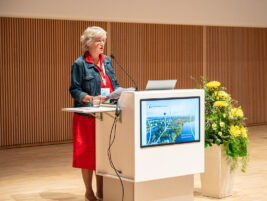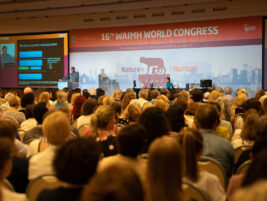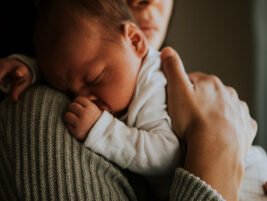This column focuses on the perspectives of clinicians/students who are engaged in infant mental health research at Masters and Doctoral level. It features a sample of current ethically approved research projects. The column aims to highlight the diversity of student research across the globe that is being conducted by WAIMH members, while also providing a global community of interest and support for each student’s research.
If you are a WAIMH member/WAIMH student member who is currently engaged in Masters or Doctoral research, and you have ethical approval for your study, we invite you to share a little bit about your study. This would entail providing the following:
- Project working title;
- Name of your institution and department;
- Name/s of your supervisors; and
- A working abstract about your research.
Please direct all submissions and enquiries to Angela McLaughlin, Column Coordinator.
This column features a doctoral research project being conducted by Wendy Bunston, La Trobe University, Bundoora, Australia. Social Work and Social Policy Department of Community and Clinical Allied Health.
Title: How Refuge provides ‘refuge’ to infants: Exploring how ‘refuge’ is provided to infants entering crisis accommodation with their mothers after fleeing family violence.
Doctoral Researcher:
Wendy Bunston. La Trobe University, Bundoora, Australia. Wendy can be contacted by email at w.bunston@latrobe. edu.au
Supervisors:
Associate Professor Margarita Frederico and Dr Mary Whiteside.
The purpose of this research is to discover what constitutes ‘refuge’ for infants. This research explores what the refuge setting provides to the infant in order for the infant to feel safe and protected from harm, following their departure from a relational home experience which involved the use of violence. It elucidates what actually occurs for the infant who first enters a refuge at a time when both mother and infant are likely to be traumatised by their sudden departure from a violent relationship, and/or from their familiar surroundings. It attempts to understand how the infant experiences feeling safe simply by moving into another setting with their mother. Also, what specific things may occur for the infant when they enter refuge accommodation with their mother which facilitates the experience of the infant feeling safe.
Additionally, this study is interested in teasing out the notion of ‘refuge’, that of providing safety and protection to the infant, and what that means to the mothers and workers in the refuge setting. This research is concerned with giving voice to those who are least acknowledged having a voice in our society: the pre-verbal infant. As such it has focused predominately on infants under 12 months of age. Drawing on infant observations, interviews with mothers and focus groups with staff, this research has been conducted in Women’s Refuges within Australia, England and Scotland. It utilises a new ‘infant led’ qualitative research methodology. This new synthesis brings together the knowledge of ‘intersubjectivity’ with ‘constructivism’ in the context of infant led practice. What it offers is a way of respectfully understanding the perspective of the infant within the environment of Women’s Refuges.
Perspectives from Masters and Doctoral Studies
Authors
McLaughlin, Angela,
University of Edinburgh, Scotland, UK,
angela@butterflybabyclinic.com








